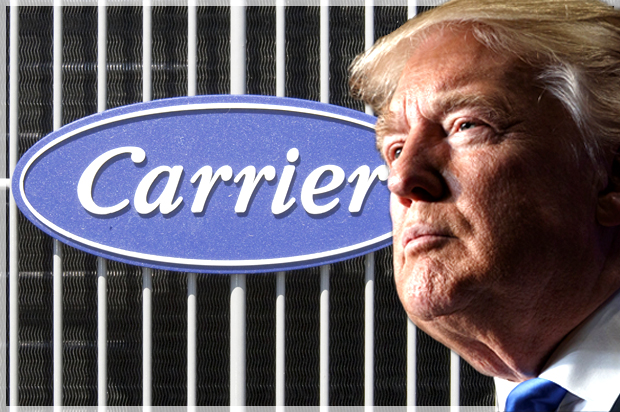The decline of coal and manufacturing has obsessed American politicians since long before the Make America Great Again hat was a gleam in Trump’s corrupt eye. They weren’t coming back 20 years ago, and no amount of bluster over a couple of hundred jobs at a Carrier plant will make them return now. Why then, Paul Krugman asks in his Monday column, “does public discussion of job loss focus so intensely on mining and manufacturing, while virtually ignoring the big declines in some service sectors?”
While Trump was joined by coal miners as he signed away hard-won environment protections, all in the name of bringing back an obsolete industry, Krugman notes that “Macy’s announced plans to close 68 stores and lay off 10,000 workers. Sears, another iconic institution, has expressed ‘substantial doubt’ about its ability to stay in business.”
Overall, there are a third fewer jobs in department stores in 2017 as there were in 2001. That’s approximately half a million jobs, and eighteen times the number of coal jobs lost in that same time period. Krugman also mentions the 270,000 newspaper jobs lost since 2000, nearly two-thirds of that industry’s work force.
So why hasn’t the loss of service sector jobs, or the loss of local malls and newspapers grabbed headlines the way loss of factories have? Krugman has a few theories. Sure, factories have been the pillar of local economies for decades, with generations of children hoping to join their parents in working stable, well-paid jobs that didn’t require a college degree. Also, it’s an easy narrative for politicians, especially aspiring demagogues:
“[They] tell coal miners that liberals took away their jobs with environmental regulations. They can tell industrial workers that their jobs were taken away by nasty foreigners. And they can promise to bring the jobs back by making America polluted again, by getting tough on trade and so on. These are false promises, but they play well with some audiences.”
Then there’s the racism. As Krugman, citing Slate’s Jamelle Bouie, points out, most of the people who held these manufacturing jobs were white men, especially more so than service sector jobs. Politicians can’t quit their addiction to white male votes, even as other demographics overtake them.
Either way, jobs are being lost, and this is only the beginning. Krugman notes that “In an ever-changing economy, jobs are always being lost: 75,000 Americans are fired or laid off every working day. And sometimes whole sectors go away as tastes or technology change.” The question isn’t whether we can bring these specific jobs back, but how we can train workers for newer, relevant industries and most importantly, to cushion the fall when the layoffs hit. Krugman leaves us with this prescription for economic healing: “We can guarantee health care and adequate retirement income for all. We can provide aid to the newly unemployed. And we can act to keep the overall economy strong — which means doing things like investing in infrastructure and education, not cutting taxes on rich people and hoping the benefits trickle down.”
Good luck getting politicians to listen.


